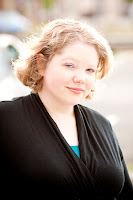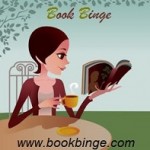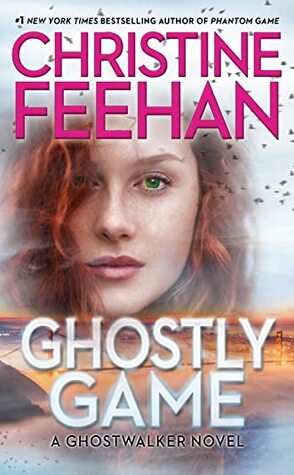
, is out now!
________________________
The Question of Historical Accuracy
As a reader of historical romance, I want to be swept away by the story so that the modern world fades around me and I can escape to another time, another place—even if it’s only an hour here and there in between family and work obligations.
As a writer, I want my readers to experience this same feeling, and part of this requires that I keep to my end of the bargain. As an author of historical romance, I must prove my credibility in my research of the time period I choose to write about.
My debut novel, a Victorian romance titled SEDUCING THE DUCHESS, revolves around the issues of divorce and remarriage. After being betrayed by her husband at the beginning of their marriage, Charlotte is so desperate to escape him that she does everything she can to force Philip to petition for a divorce.
Although getting a divorce granted was difficult throughout the 19th century, it was especially rare before the Divorce and Matrimonial Causes Act of 1857. Since the book is set in 1848, this means that a divorce which allowed the right to remarry required a special act of Parliament. The woman usually must be proven to have committed adultery, and the man had to go through both the ecclesiastical and civil courts before requesting a member of Parliament to introduce the special act for the divorce. According to Sally Mitchell’s Daily Life in Victorian England, fewer than 10 bills of divorce were passed through Parliament per year in the first 50 years of the century.
While it was important that I know these facts so I could keep the novel as historically accurate as possible, I chose not to give the reader all this information. Instead, Philip talked about needing to petition the courts if he were to request a divorce, and I implied that the length of time it took for a petition to be approved was unknown. It could be months, or years, even.
However, at one point, I also took historical accuracy into my own hands. Because Philip is a duke, I assumed the possibility that his power and status would influence the courts and Parliament to grant the divorce. Does this mean he would have been successful? Not at all. Even as a duke, he was still at the mercy of others. But based on Philip’s experience, he’d basically been given everything he wanted his entire adult life as a result of his ducal status. Up to this point, he had no reason to expect he would be denied.
This wasn’t the only authorial privilege I asserted in the novel when it came to historical accuracy. I also played with Charlotte’s character. As most of us know, the stereotypical Victorian woman of the higher classes was thought to be the model of virtue—reserved emotionally and sexually, dedicated in her Christian faith, expressing her moral rectitude through her devotion to various charities. True, this is a stereotype, but even if it was the rule, I was determined to make Charlotte the exception. While she wasn’t born into the aristocracy, she was the daughter of landed gentry—a squire, in fact. Yet she sang bawdy songs in church when she was little. As a grown woman she cusses; she’s also aware of her power over men and is sometimes overtly sexual. Could a woman like this have existed in Victorian England? Of course. No matter how a society is portrayed as a whole, there will always be people who defy the norm.
In one part of the story, Philip gives Charlotte permission to do anything she wants (would reveal more, but don’t want to give too much away!). As a result, Charlotte tests him in a couple of different areas. One way she does this is by gambling with the servants. I believe this is where a red flag would go up for most readers. A heroine of the upper class gambling with her servants? It sounds preposterous, doesn’t it? Especially when the servants themselves each have their own statuses, and wouldn’t normally fraternize with one another in such a setting.
The decision I had to make here was choosing between complete historical accuracy and my heroine’s character. We already know Charlotte was trying to test Philip. Could she be charming enough to convince the servants to do something which they knew might enrage their master? Would they also be convinced to set aside their social positions in respect to the other staff? I could have chosen another scene entirely and not have had to make this decision, but given Charlotte’s character, I knew it was possible.
In both of these instances, I didn’t depend on historical accuracy alone, but chose to pursue the story based on the characters themselves within the framework of the time period.
But I’m only one reader, and I’d love to hear your thoughts. If you read historical romance, what do you believe is the role of historical accuracy in the story? How much leeway do you give the author with the characters and the plot? What sets you off and makes you throw the book against the wall? Do you prefer the exception or the rule? One commenter will be randomly drawn to win a copy of my debut, SEDUCING THE DUCHESS.
I was born and raised in East Texas, moved to Colorado after getting married seven years ago, and have been craving snow-free winters ever since. I have a husband who just keeps getting better and better over time, a wonderful 1-year-old daughter who is constantly trying to escape out the doggie door, and am expecting another girl in November. My first published book will be released in October, I have two amazing critique partners, an awesome publisher (NAL), an absolutely fantastic agent (Sara Megibow of the Nelson Literary Agency) and, as can be seen above, a slight problem with using too many adjectives.
Life is simply…fantastic.
______________________________
Seducing the Duchess is available from Signet. You can buy it here or here
in e-format.




I just finished reading your debut novel. I find that when reading historical romances that if the H/h are likeable and engaging then inaccuracies to the time do not bother me as much. I enjoyed your book and look forward to reading your next
Like Kat (above), if the story holds my attention I can forgive almost anything.
What does bug me is when people are eating the wrong foods or reading books that haven’t been published yet the bothers me most.
Hi Kat! I’m so glad you enjoyed the book! Thank you for giving this debut author a chance. =)
goddessani-I completely agree with you. As a writer, I think that being inaccurate regarding facts in day-to-day living is a lot different from having characters which step outside the norm.
I think some readers can be really picky about historical inaccuracies. For me, if the story is good, then I don’t mind giving the author a bit of lee-way. If it’s an extreme inaccuracy, such as giving a 19th Century heroine a modern career when most were governesses, then the author may have taken a bit too much liberty with the story. It really comes down to how ell the story is told.
Best of luck with your debut.
I think it is acceptable up to a point. Like it said in the post, the Victorian woman was focused on God and family. She wasn’t supposed to have dreams and ambitions of her own. She lived a chaste life and was under the rule of her father from the time she was born and then under her husband’s control until she died. She basically had no will of her own. I like those stories in which the women have sass and life. I’d rather read a story that was a little inaccurate than one in which the main protagonist never fully captured my attention. It’s hard to like a book if you don’t like the characters.
If you strictly stuck to the facts, it be a historical novel and not a romance novel. Romance novels are an escape from reality, so a little leeway should be allowed.
I appreciate historical accuracy, but I feel like if it was everything was historically accurate then I would be reading nonfiction. I like the authors can create characters that are unconventional.
Hi Kim! I think one of the appeals for many Victorian romance writers is the ability to write heroines who could have other jobs–specifically, I mean in the late Victorian era. One of my very favorite writers is Laura Lee Guhrke, who wrote the Bachelor-Girl series. If you haven’t had a chance, I highly recommend her. =)
Hi Chanpreet-Your post reminds me of–I believe this is who I’m thinking of–Emily Dickinson, who was controlled in such a manner, although in that instance, she married so she could escape from her father. I definitely think stories like that could be written, but I agree with you–I want a little escapism in my romance novels, and sometimes that means having larger-than-life characters.
Hi Jane and Stephanie! Question for you both–
Do you think it might be said that historical romance readers like to feel the authenticity of the period and then see how the characters react within that restrictive time period, even if it might be considered out of the norm?
Would you say that you search for books about characters that like to keep to the rules or break the rules?
I enjoy accuracy in historical romance but I do not mind if it’s off a bit. In fact I don’t usually don’t notice errors especially if the book is well written and I’m in deep into in the novel. Thanks for sharing today!
Ms March (that sounds so Little Women!) asked: Do you think it might be said that historical romance readers like to feel the authenticity of the period and then see how the characters react within that restrictive time period, even if it might be considered out of the norm?
Yes, I think that is exactly what I meant to say. Its as if you have a canvas (the period and mores) but what you do within that canvas is up to you as an author.
In general, I don’t know enough details about a historical period to notice inaccuracies unless they are pretty big, so they don’t usually bother me. At the same time, I do enjoy reading about details that make a scene feel more authentic.
As for the characters, I would much rather have an interesting character to read about, even if I know they are violating the mores of their time. Shrinking violets don’t make engaging or interesting romance heroines.
I’m really looking forward to reading your book. It sounds great.
I don’t want any glaring inaccuracies, but I can overlook a lot if I am engaged by the characters and plot. If a reader gets too picky, it takes the enjoyment out of reading the story.
By the way, your story sounds delightful!
Hi Johanna! Well said. I don’t think it’s just with historical inaccuracies, either. I read a book over the summer where the typos near about killed me, but I would still give the book 5 stars because I was so hooked on the writing and the characters.
Hi goddessani–I was so devastated when I read Little Women the first time as a child and Jo didn’t end up with him. =) I like the way you compare a book to a canvas. Great analogy. Might have to steal it. 😉
Hi JenM-I was thinking about your comment regarding shrinking violets, and I can’t think of any historical romance where a heroine who started out as a shrinking violet didn’t change throughout the course of the book. It seems a lot of times our modern-day women’s rights attitudes influence the characters we like to read about, even if they wouldn’t have behaved in such a way in the past.
Hi Cheryl C.! Thanks, I hope you enjoy it! =) I agree with about over-analyzing, but I also think (and will always write with the realization) that, as a historical romance author, I must keep my end of the bargain to make the story as accurate as possible–character motivations notwithstanding.
Congrats on your debut release, Ashley. I do appreciate historical accuracy, but I don’t mind giving an author a little leeway to make the story more creative or dramatic.
Great post! Congrats on your release!
If the characters are likeable, the connection between the h/h present, and a good plot then inaccurancies don’t bother me. I only get slightly annoyed with the really obvious things that may be out of order. I am an easy to please reader ;).
My main objection is being jarred out of the story. Accuracy — which is very hard to measure anyway, none of us having been alive then — is less important to me than an author conveying the feeling of another time. If I didn’t want that, I wouldn’t be reading a historical. — willaful
Historical accuracy takes a back seat to plot and characterization. It’s fiction, after all. While I appreciate historical accuracy, I do understand if it has to be bent a bit to accommodate the characters or plotline.
ironss[at]gmail.com
An unusual character wouldn’t normally make me throw a book against a wall (esp. if there’s some comment made to the effect that the heroine is “out of the common way” or some such) but anachronisms like a Victorian heroine saying “okay, cool” would do it!
Good luck with your debut.
I enjoy historical accuracy in a story, but don’t mind some leeway in regards to the characters and plot, especially if it is explained in an afterword at the end. Since I’m not a historian, I don’t want to read something that is not true and then have this idea that it really happened, so I appreciate an author’s research and effort to be accurate.
Seducing the Duchess sounds like a wonderful story and I’m looking forward to reading it.
I don’t know enough to be real picky about historical accuracy. For me, it’s more about getting a sense of the time and place from the historical details. The one thing I don’t like is when the characters seem like they behave and think the same as people today.